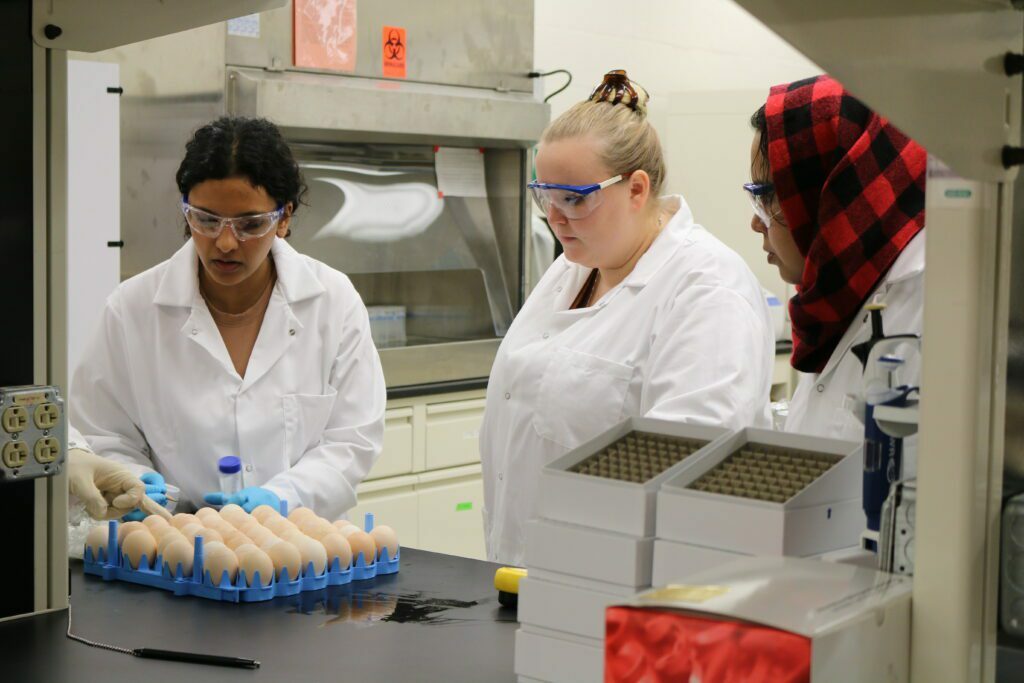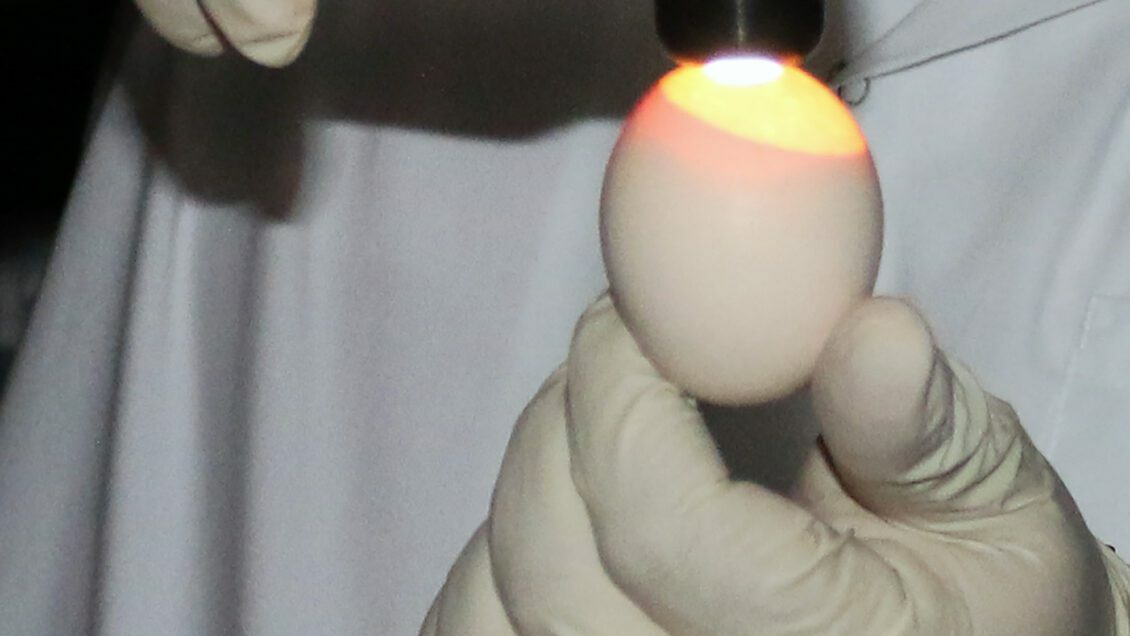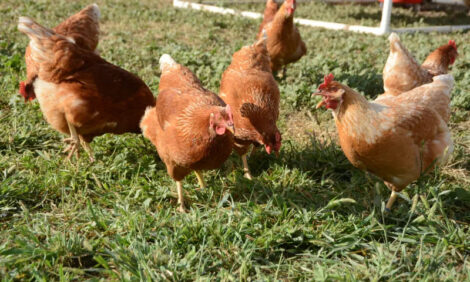



Clemson researcher injects chicken eggs with probiotics to promote ‘One Health’
Campylobacter is threatening the poultry industryPoultry is one of South Carolina’s largest agricultural industries, generating $1.5 billion annually. But the bacterium Campylobacter is threatening this economic stronghold.
Campylobacter is responsible for many food poisoning and diarrheal diseases in humans. Poultry is considered one of the main sources. To help fight this enemy, Clemson University assistant professor Khaled Abdelaziz and his team are researching the use of probiotics to improve poultry gut health and control foodborne pathogens. This research is based on the One Health initiative, a worldwide strategy for expanding all aspects of health care for humans, animals and the environment.

“Campylobacter is one of the leading bacterial causes of human diarrheal illness in the United States,” said Abdelaziz, an assistant professor of immunology in the Clemson Department of Animal and Veterinary Sciences professor. “Some strains have been associated with several autoimmune conditions, most notably Guillain-Barré syndrome, with nearly 40% of reported Guillain-Barré syndrome cases attributed to this bacterium.”
Campylobacter is carried in the intestines, liver and other organs of poultry and other animals. Often, infected animals do not show any signs of illness and bacteria can spread to edible parts during slaughter. This infection produces little or no disease in poultry, but it can be transmitted to humans through farm animals and their products.
On-farm control measures are required to mitigate the risk of the bacteria being transmitted to humans working with poultry and people who visit poultry farms. Abdelaziz’s lab is studying the impact of inoculating eggs (in-ovo) with probiotics on gut health and immune system development of broilers before they hatch.
Probiotics are live bacteria, fungi, or yeasts that help poultry maintain healthy digestive systems. They are increasingly being included in poultry diets as alternatives to antibiotics. Abdelaziz and his team believe in-ovo technology can be used to deliver probiotics to chicken embryos and help boost chicks’ immune systems before they hatch.
During their investigation, Abdelaziz and his team have found certain probiotics (lactobacilli) applied in-ovo to chick embryos increased immune-related genes in the chicks’ guts which could promote healthy immune systems of chick embryos. Future studies will investigate whether Lactobacillus-induced immune responses protect against harmful microorganisms after chicks hatch.
“Delivering naturally occurring probiotics to chick embryos is a practical, realistic and achievable approach to establish and maintain a healthy gut microbiome, increase animal welfare and gut health, mitigate enteric diseases, as well as enhance overall health and chick quality without the use of antibiotics,” Abdelaziz said.

In addition to people working on poultry farms, people handling raw poultry also can come in to contact with Campylobacter, as well as people who eat undercooked poultry. According to the Centers for Disease Control and Prevention (CDC), “A single drop of juice from raw chicken can contain enough bacteria to infect” a person. Symptoms range from mild to bloody diarrhea, vomiting, stomach cramping and fever.
Health risks may be minimized by practicing proper hygiene and following the United States Department of Agriculture’s Food Safe Families campaign – Clean, Separate, Cook and Chill – for safe food handling.
While poultry do carry diseases, they also are nutritious. Information provided by the National Institutes of Health shows poultry meat is rich in protein, high in unsaturated fatty acids and has low cholesterol levels. This meat can be considered a functional food because it contains vitamins and antioxidants.
Poultry eggs are nutritious because they contain vitamins and minerals in addition to compounds that have been shown to be effective in lowering blood pressure, as well as contain antioxidants and anti-cancer properties.
Papers related to this study can be found in the April 2022 edition of Poultry Science and in the Feb. 28, 2020 edition of Frontiers in Veterinary Science.
Agribusiness has a $51.8 billion annual impact on the South Carolina economy. According to the South Carolina Poultry Federation, the poultry industry represents 40% of all agriculture in the state and 80% of animal agriculture.
The One Health initiative
Abdelaziz’s research is based on the One Health initiative. This approach is used to monitor and control public health threats by learning how diseases spread among people, animals, plants and the environment. According to the Centers for Disease Control and Prevention, One Health is not new, but has become more important in recent years as many factors have changed interactions between people, animals, plants and the environment.
One Health mobilizes different levels of society to work together to foster well-being and tackle threats to health and ecosystems, while addressing the need for clean water, energy and air, safe and nutritious food, taking action on climate changes and contributing to sustainable development.








